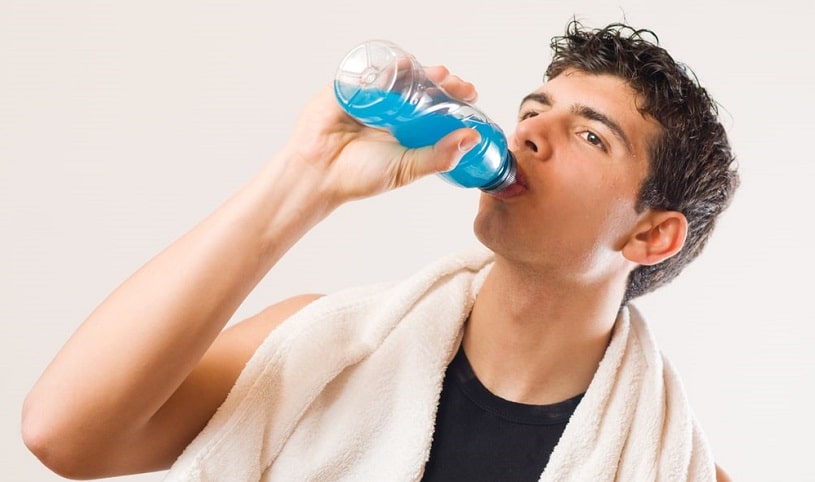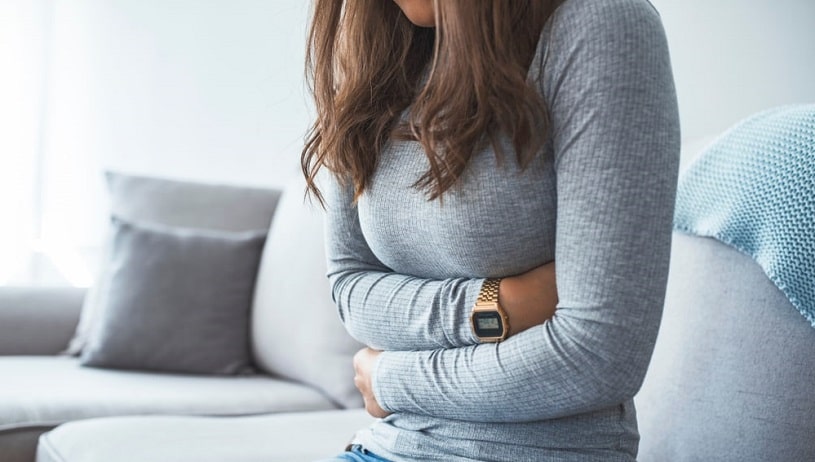Caffeine is, surprisingly, the most consumed substance in the world. From statistics, about 100 million Americans consume at least one coffee cup per day, which is quite significant. Americans and people worldwide love their caffeine fix, be it from coffee, energy drinks, sodas, or drinks that combine caffeine and alcohol (no longer available in the United States). If they skip that regular cup of coffee or glass of soda that they usually take, experts warn that they might start to experience symptoms of caffeine withdrawal.
Table Of Contents:
This article will provide information on withdrawal and its symptoms, as well as caffeine alternatives.
What Is Caffeine Withdrawal?
Neuropharmacologists call it a drug that acts as a mild stimulant. It blocks receptors in the brain. Because the relationship between coffee and blood pressure is well known, we know that it can dilate blood vessels, causing caffeine withdrawal headache, and other symptoms. It is possible to become dependent on this substance after just a week or two of continued use. One shouldn’t be surprised if the symptoms start manifesting almost immediately after quitting caffeine.

Dependence develops as this substance acts to block receptors for a chemical known as adenosine. By stopping adenosine from acting, it prevents a person from feeling drowsy by effectively releasing dopamine, which is involved in wakefulness. When a person has reached this point and suddenly stops using the drug, the body finds it hard to adjust as it expects the drug for normal functioning. It’s the struggle to adapt and the absence of the substance that results in withdrawal. It tends to push the person to seek it out, which is felt as cravings.
Symptoms Of Caffeine Withdrawal
When one finally decides to quit this drug, the symptoms of caffeine withdrawal can start anywhere from 12 to 20 hours after the last cup of coffee due to the relatively short caffeine half-life. It can peak at two days and will probably go on for as long as a week. It’s recommended that a person weans off the drug gradually by reducing the quantity consumed little by little. This makes it a bit easier to cope with withdrawal. Caffeine withdrawal symptoms aren’t specific or constant, and they vary from person to person depending on their physiology and the quantity they’ve been consuming. However, there are common symptoms that one can expect when trying to quit.
Some Of Them Include:
Headache
The pain of a caffeine headache will start behind the eyes and then move to the front of the head, making the day-to-day activities ever so terrible. This symptom is experienced around 72 hours after the last intake. The reason this happens is that it causes constriction of blood vessels in the brain. The brain gets used to this when a person is dependent, so when they abstain and go through withdrawal, the vessels dilate, increasing blood flow to the brain and causing pain and what is known as a caffeine withdrawal headache.
Fatigue and Sleepiness
When the body is already dependent, and a person needs coffee or soda to give that instant fix of energy, it becomes difficult to be as active as before stopping. One will experience lower energy levels physically and psychologically, tempting a person to go back to the drug. Typically this occurs within the first 24 to 36 hours after the last drink.
Depression
When one quits this drug, serotonin levels will drop, which will have an immediate impact on the mood, and consequently, depression sets in. The main issue is just the lack of caffeine, and this depression is not linked to any real-life happenings or conditions. This symptom also manifests between 24 to 36 hours after the last coffee intake.
Irritability
It is probably a good idea to prepare everyone one comes in daily contact with to a little grumpy mood and probably an overreaction to the little things that normally wouldn’t be so. This irritability is often a result of the body reacting to the absence of this substance. And the headache further amplifies it.

Anxiety and Nervousness
It is possible to have actual physical manifestations of anxiety. The chest starts to get a little bit tighter, and the breathing might become a little more labored and difficult.
Concentration Impairment
One will experience difficulty concentrating and processing information. The alertness levels will decline at work and school, making even the easiest tasks seem like the most challenging thing to do. That is why coffee is so popular in colleges and workplaces, where a high level of mental concentration is needed. Lapses in concentration show up almost immediately after the substance’s intake has been interrupted.
Muscle Pain and Stiffness
Aches and pains occur during the initial stages of withdrawal. If one usually uses this drug for workouts, they might find it harder to lift the same amount of weight, keep the energy levels up, and keep the endurance level high under normal conditions.
Flu-like Symptoms
It is also common to start experiencing flu symptoms such as a stuffy nose, blocked sinuses, chills, hot flashes, etc.
Insomnia
Among the most common effects of coffee withdrawal is insomnia. This is, ironically, a result of the disruption of the sleep cycle due to the use of this drug. Insomnia is a medical symptom that will probably be experienced late on in the withdrawal process.
Constipation
Coffee stimulates the bowels, and without it, the trips to the bathroom might start to get uncomfortable. It is commonly known to have a laxative effect. When consumption is regular enough, the body begins to depend on it to stimulate the bowels. When the substance is suddenly withdrawn, there will be a period where there is a struggle to function in its absence, seen as constipation.

According to information from research, tiredness, measured by a visual analog scale, is the most sensitive indicator of this drug’s withdrawal. A caffeine withdrawal headache only becomes an issue after at least 24 hours of coffee withdrawal. It was also confirmed that after longer-term abstinence, drowsiness and lethargy are transient caffeine withdrawal symptoms.
One probably didn’t know this, but caffeine withdrawal following years of previous medical research has now been classified as an actual medical disorder, and this is because it is a drug and it needs to be treated as such.
Coping with Withdrawal
Many people desire to stop their consumption of coffee and other products that contain this drug. Still, it is difficult for them due to how uncomfortable the caffeine withdrawal symptoms are. These people may want to know things that will help them cope with the withdrawal period.
Here Are Some Tips to Keep in Mind:
- Decrease consumption gradually: This is what is known as tapering, and it is recommended as the means of quitting caffeine or some other medical substances that can cause dependence. The alternative to this, stopping abruptly, also known as quitting cold turkey, tends to cause very severe caffeine withdrawal symptoms.
- Hydrate adequately: It is crucial to ensure that a sufficient amount of water is being consumed when withdrawing. This makes sure that there is more than enough fluid for the kidneys to perform their function of flushing out the substance and the metabolites. It will also help avoid headaches and other adverse health effects.
- Substitute with decaf choices and caffeine alternatives: While decaffeinated coffee and tea are never 100% free of the drug, it does contain minuscule amounts of the substance. The quantity is typically not enough to feed a caffeine addiction, making it a way to keep drinking the beverage without jeopardizing detox. From decaf, you can eventually quit entirely. Caffeine alternatives such as ginseng and Rhodiola can provide the same effects but healthier.
- Exercise regularly: This is one way to naturally boost your energy without relying on any substance. Plus, this will help you keep fit and is beneficial for your health.
- Get adequate sleep. Many people use caffeine to wake themselves up because they are fatigued. By getting at least eight hours of sleep every night, one is likely to wake up feeling refreshed with less need for a drink to wake up with.
Caffeine Alternatives
If one finds it hard to do without that energy boost or increase in focus that coffee can give, that person is likely looking for caffeine alternatives. Such alternatives can provide a similar effect without the risk of dependence, adverse health effects, or severe consequences like caffeine overdose.
There Are a Few Options to Consider When Going Through Coffee Withdrawal:
- Carob: This is a nutritious option for good health if you’re trying to stop drinking coffee. It can be thought of as a cocoa powder substitute as it tastes quite similar but with fewer calories and sugar. Thanks to pinitol, a natural component of this pod, there is a similar energizing effect that can be felt.
- Rhodiola: This herb is used as a dietary supplement, thanks to the many health benefits that it carries with it. It reduces stress, combats fatigue, and can improve mental performance and fatigue. It makes it a very suitable replacement for the effects that coffee gives in the form of tea.
- Maca: This is also known as Peruvian ginseng, and this vegetable is typically available as a powder or in capsules. It can be added to a drink such as a smoothie or tea. It is believed to improve concentration and keep fatigue away.
- Ginseng: Ginseng is one of the more popular caffeine alternatives out there, available in capsules, powders, and as a tea. It is said to improve energy levels and mental function.
Quitting Caffeine
Caffeine is the world’s most popular legal stimulant. It can cause mild dependency and somewhat inconvenient withdrawal symptoms. In most cases, withdrawal is not as nearly as severe as in other stimulants like cocaine or heroin. However, one may experience severe headaches, crankiness, irritability, lack of concentration, and constipation.
If a person persists in one’s bid to quit it, one will eventually cross the threshold where the caffeine withdrawal symptoms begin to fade until they are no longer there. It can take anywhere between two weeks to months, depending on the method used to quit and the concentration of the initial caffeine intake.
Hope Without Commitment
Find the best treatment options. Call our free and confidential helpline
Most private insurances accepted
Page Sources
- Olsen N. I. (2013). Caffeine Consumption Habits and Perceptions among University of New Hampshire Students, Honors Theses and Capstones, 103. https://scholars.unh.edu/cgi/viewcontent.cgi?referer=&httpsredir=1&article=1102&context=honors
- Juliano, L. M., & Griffiths, R. R. (2004). A critical review of caffeine withdrawal: empirical validation of symptoms and signs, incidence, severity, and associated features. Psychopharmacology, 176(1), 1–29. https://pubmed.ncbi.nlm.nih.gov/15448977/
- Bruce, M., Scott, N., Shine, P., & Lader, M. (1991). Caffeine withdrawal: a contrast of withdrawal symptoms in normal subjects who have abstained from caffeine for 24 hours and for 7 days. Journal of psychopharmacology (Oxford, England), 5(2), 129–134. https://journals.sagepub.com/doi/abs/10.1177/026988119100500206
- Peckham M. (2013), Caffeine Withdrawal Is Now a Mental Disorder, Time, https://newsfeed.time.com/2013/05/31/caffeine-withdrawal-is-now-a-mental-disorder/
- Sajadi-Ernazarova K. R., Anderson J., Dhakal A., (2020). Caffeine Withdrawal. Treasure Island (FL): StatPearls Publishing, https://www.ncbi.nlm.nih.gov/books/NBK430790/
- Juliano, L. M., Huntley, E. D., Harrell, P. T., & Westerman, A. T. (2012). Development of the caffeine withdrawal symptom questionnaire: caffeine withdrawal symptoms cluster into 7 factors. Drug and alcohol dependence, 124(3), 229–234. https://pubmed.ncbi.nlm.nih.gov/22341956/
- Rogers, P. J., Heatherley, S. V., Hayward, R. C., Seers, H. E., Hill, J., & Kane, M. (2005). Effects of caffeine and caffeine withdrawal on mood and cognitive performance degraded by sleep restriction. Psychopharmacology, 179(4), 742–752. https://pubmed.ncbi.nlm.nih.gov/15887055/
- Lovallo, W. R., Farag, N. H., Vincent, A. S., Thomas, T. L., & Wilson, M. F. (2006). Cortisol responses to mental stress, exercise, and meals following caffeine intake in men and women. Pharmacology, biochemistry, and behavior, 83(3), 441–447. https://www.ncbi.nlm.nih.gov/pmc/articles/PMC2249754/
- Heatherley SV. Caffeine withdrawal, sleepiness, and driving performance: what does the research really tell us? Nutr Neurosci. 2011 May;14(3):89-95. https://pubmed.ncbi.nlm.nih.gov/21756529/
- Juliano, L. M., Evatt, D. P., Richards, B. D., & Griffiths, R. R. (2012). Characterization of individuals seeking treatment for caffeine dependence. Psychology of addictive behaviors : journal of the Society of Psychologists in Addictive Behaviors, 26(4), 948–954. https://pubmed.ncbi.nlm.nih.gov/22369218/
- Addicott, M. A., Yang, L. L., Peiffer, A. M., Burnett, L. R., Burdette, J. H., Chen, M. Y., Hayasaka, S., Kraft, R. A., Maldjian, J. A., & Laurienti, P. J. (2009). The effect of daily caffeine use on cerebral blood flow: How much caffeine can we tolerate?. Human brain mapping, 30(10), 3102–3114. https://pubmed.ncbi.nlm.nih.gov/19219847/
- White, B. C., Lincoln, C. A., Pearce, N. W., Reeb, R., & Vaida, C. (1980). Anxiety and muscle tension as consequences of caffeine withdrawal. Science (New York, N.Y.), 209(4464), 1547–1548. https://pubmed.ncbi.nlm.nih.gov/7433978/
- Rao S. S., Welcher K., Zimmerman B., Stumbo P., (1998), Is coffee a colonic stimulant?, European Journal of Gastroenterology & Hepatology, 10(2), 113-118. https://europepmc.org/article/med/9581985
- National Center for Complementary and Integrative Health, Rhodiola, 2020, https://www.nccih.nih.gov/health/rhodiola


